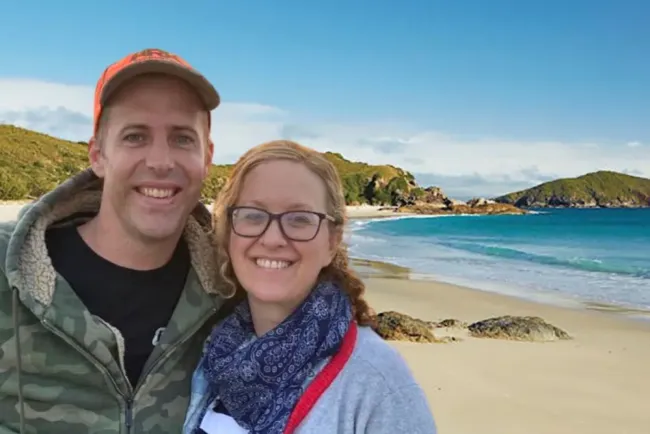Luke Walford Killed in Deadly Shark Attack Near Great Barrier Reef – Is Swimming Still Safe?
Queensland, Australia – A tragic shark attack near the Great Barrier Reef has left the world in shock. Luke Walford, a 40-year-old youth pastor and school chaplain from Rockhampton, was killed while spearfishing with his family. This isn’t just another shark attack – it’s a stark reminder of the dangers lurking beneath the surface. Are we putting our lives at risk every time we enter these waters?
The Details of the Attack
- When and Where: December 28, 2024, at around 4:30 PM, near Humpy Island in the Keppel Bay Islands National Park – a spot known for its appeal to divers and snorkelers.
- The Attack: Walford’s neck was severely injured in what authorities called a "life-threatening" assault. Despite the desperate efforts of paramedics and a rescue helicopter, he was pronounced dead by 6:00 PM.
- What Was He Doing?: Spearfishing – an activity he enjoyed and frequently shared on social media. Was this just an unfortunate incident, or are sharks becoming more aggressive?
A Community in Mourning
The Rockhampton community is grieving, but their sorrow is quickly turning to anger. Walford was known as an "inspirational leader," a man who "loved people and loved God." His tragic death raises a troubling question: Why wasn’t more done to protect him?
Are Shark Attacks on the Rise?
This marks the second shark attack in Central Queensland this month. Earlier in December, a man in his 60s was bitten while spearfishing off Curtis Island but survived. Marine experts consider the area a "major shark highway," where deep waters and rich marine life attract predators. Spearfishing, with its blood scent, practically invites sharks to the area.
The Harsh Reality
While shark attacks are rare, this is the first fatal attack in Central Queensland since 2020. Since 1791, Australia has recorded over 1,200 shark attacks, resulting in more than 250 fatalities. Sure, the odds are slim, but that offers little comfort to Walford’s family.
Are Safety Measures Enough?
Authorities have temporarily closed the area, but is that really enough? Marine ecologists are advising caution, especially during spearfishing, and recommend avoiding swimming at dawn, dusk, or when fish activity is high. But let’s be honest – the Great Barrier Reef is a multi-billion-dollar tourism industry. Are we prioritizing profits over safety?
The Big Question
Is it time to stop pretending that sharks and humans can peacefully coexist in these waters? Should we implement more aggressive shark mitigation measures, like drumlines, nets, and advanced tracking technologies? Or should we continue to take our chances and hope for the best?
Luke Walford’s death isn’t just a tragedy – it’s a wake-up call. The Great Barrier Reef is a natural wonder, but it’s also a dangerous place. How many more lives must be lost before we take action?
What do you think? Are we doing enough to protect people, or are we simply feeding the sharks?
